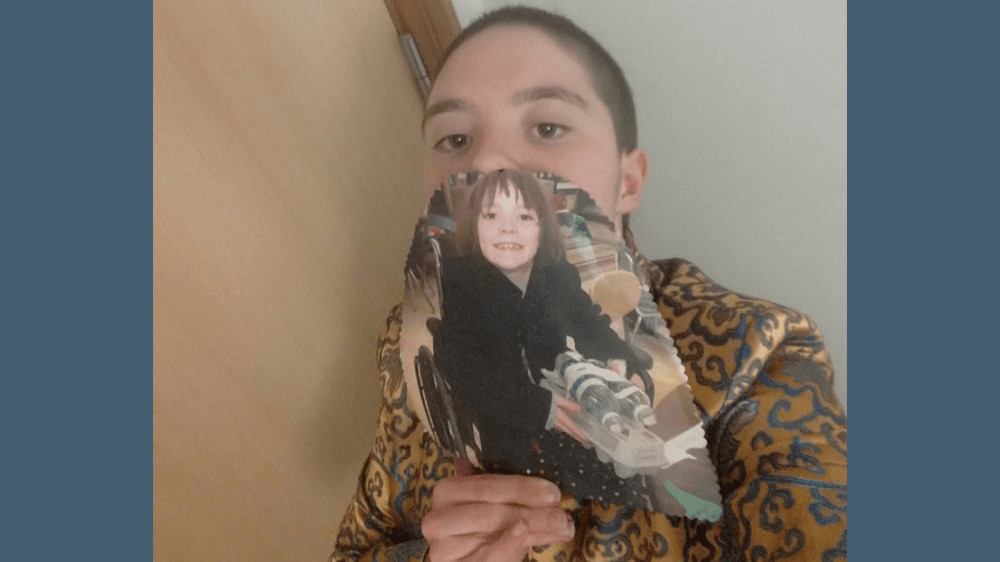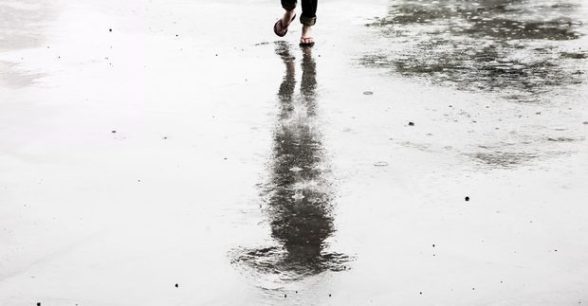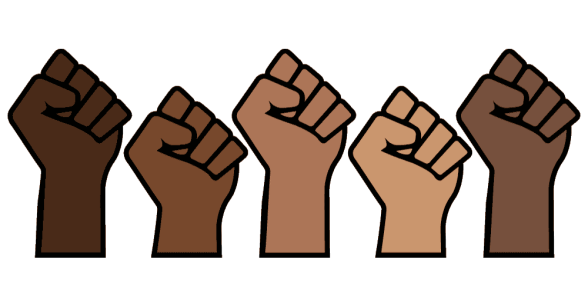Cerebral Palsy Isn’t Just a Childhood Disability. That’s Why Adults with Cerebral Palsy Need Access to Healthcare, Too.
Being a disabled kid is hard. I think that’s something everyone knows, including abled people. But even when you’re a disabled kid, you don’t get prepared for the world of being a disabled adult. Over the past year, I’ve found an incredible community of disabled adults, but so much of my disability seems rooted in my childhood, and I can’t pull it out. I have cerebral palsy (CP), which is notorious for being perceived as a childhood disorder.
I’m now about to turn 21, but as I look at the CP homepage on the Center for Disease Control and Prevention (CDC) website, the third sentence is “CP is the most common motor disability in childhood.” I roll my eyes. Do people think children with CP hit the age of 18 and then poof, it’s gone? Apparently it’s easy to forget that kids with cerebral palsy grow into adults, but it shouldn’t be. This is dangerous. This has prevented me from getting the care I need. The infantilisation of disabled people is bad enough, but when your care drops off as you age, this is terrifying. You’re in the worst of both worlds, trying to prove that you have agency, but also trying to prove that you need care. You can’t win.
My experience of being a child with cerebral palsy spanned four different countries, notably the United Kingdom and the United States. In the UK, the aim of my care was to make me more comfortable and to reduce pain. As good as that was, when you’re attending regular physiotherapy and missing class, unable to wear the “girl shoes” that your friends wear, and constantly left out of sports teams, it hits you hard. Before I moved to the USA, it was just an aura of struggle and masking how hard it really was to be a disabled child. I remember almost nothing.
In the USA, everything changed. Thanks to health insurance through the university my father worked at that I was lucky enough to be covered under, I got surgery to lengthen my hamstrings. I’m very conscious that this is a huge privilege, but when I look at how hard I have to fight to get care as an adult, I feel slighted. The surgery I had was life-changing – I can now run and do tuck-jumps – but for the rehabilitation period, I cycled through different mobility aids, such as a wheelchair and a walker. As a small (white) girl in a wheelchair, I was treated great and got all the care my parents and I asked for. The point where I stopped using a wheelchair or a walker was at the same time I returned to the UK with my family, and was hugely jarring.
Now that I didn’t have any mobility aids, I felt invisible to care providers. Now that I’d gone through surgery, I felt like I wasn’t supposed to be disabled anymore. This hung on my mind for the remainder of my adolescence as I got less and less care. When I turned eighteen, I began to have to fight much, much harder as I left the child healthcare system. Even in 2021, the huge amount of work and admin that disabled people do to get care goes unacknowledged by care providers.
This becomes a cycle of losing your care as you become an adult, needing to do huge amounts of admin to sort out your care again, having to keep this up, burning out, and needing the care even more since you’ve burnt out but having no energy for it. Getting care expends energy, and if you leave adults with CP out of your view of CP, you’re not going to recognise this. Disabled adults have lives to balance. Getting care is another few hours in our schedule if you factor in the travel, the preparation for the travel, the preparation for the care, and the care itself. We need access to streamlined care to stop expending even more energy on our disability.
In February of this year, Emma Livingstone from the Adult Cerebral Palsy Hub and others with CP started a campaign to “stamp out” the disparity in healthcare that people with CP face once they turn eighteen. The campaign involved commissioning second-class stamps featuring the faces of five public figures who all have CP, including comedians Rosie Jones and Francesca Martinez. Adults with CP are treated as second-class citizens, since we do not get joined-up (integrated) healthcare like adults who have other life-long conditions. This is 130,000 people in the UK. We need care parity for CP.
The decrease in support as people with CP get older is really worrying, and I often wonder if it’s directly tied to the idea that CP is a childhood disorder. When you search for “cerebral palsy” on Google, the third question that appears on the page is “Does cerebral palsy go away?” All this does is contribute to the erasure of adults with CP. Just because it helps children to get care to improve their condition, it doesn’t mean that they no longer have CP when they’re an adult. The drop in care can even cause people to question whether they’re really disabled anymore and if they “deserve” to struggle. This is definitely what happened to me. I’m hugely grateful for my surgery and the opportunities that have come with it, but I wish that people who can’t have that surgery weren’t put at a disadvantage to me.
This Disability Pride Month, I’m taking time to evaluate where I am in terms of embracing my changing relationship with disability. I am no longer a CP kid, but my history as one helps to contextualise the journey I’m on. My wish for this month and beyond is that CP adults are remembered as much as CP kids are – if you don’t care about us after we strive for agency as adults, and stop being able to be used for inspiration porn as kids, you don’t care about us. Adults with CP exist, and wherever we are in the world, we deserve the care we need.
About Rooted In Rights
Rooted in Rights exists to amplify the perspectives of the disability community. Blog posts and storyteller videos that we publish and content we re-share on social media do not necessarily reflect the opinions or values of Rooted in Rights nor indicate an endorsement of a program or service by Rooted in Rights. We respect and aim to reflect the diversity of opinions and experiences of the disability community. Rooted in Rights seeks to highlight discussions, not direct them. Learn more about Rooted In Rights



